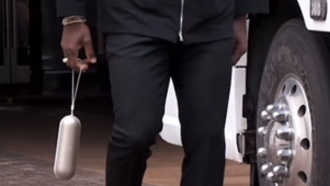On Wednesday, Mar. 30, shipping giant FedEx Corp. announced that it partnered with a San Francisco Bay-area startup, Elroy Air, to put its hybrid-electric vertical take-off and landing drone through real-life testing.
Elroy Air had demonstrated its autonomous drones in January, and the company showed that the drones are designed specifically to move cargo.
FedEx to Use Autonomous Aircraft
FedEx's subsidiary FedEx Express will start testing the aircraft called the Chaparral in 2023 within the middle-mile operations, which is a range of 300-500 miles.
The demand for e-Commerce shipments is expected to increase, according to the senior vice president of global planning of FedEx Express, Joe Stephens.
Stephens said they had forecast to see 100 million e-commerce shipments in the United States by 2026. He added that in a post COVID environment, they now expect to exceed 101 million e-commerce shipments per day in the country in 2022, according to Mashable.
Also Read: 5,000 BrightDrop Electric Vans by GM Ordered by Walmart as FedEx Adds 1,500 Vans to Current Order
The two companies have worked together since 2020, with FedEx providing Elroy Air insight into its preferences.
The test flights are scheduled to start in early 2023. It will give answers to questions like how the aircraft can communicate with the facilities, the FedEx staff, and their network and which routes make the most sense.
Aside from that, during the test flights, the company will look at the Chaparral's reliability, range and speed, and its overall ability to meet the customers' expectations.
Elroy Air CEO David Merrill told Forbes that the upcoming test flights would mark a key milestone in its relationship with the cargo giant FedEx.
How the Chaparral Works
The Chaparral is created to pick up a pod loaded with 300 to 500 pounds of cargo, fly it to a destination as far as 300 miles, then drop it off. It will then be ready to pick up another load as soon as it drops off the previous one.
The pod waiting to be picked up communicates with the autonomous drone through a set of radio frequency beacons which assists the aircraft in triangulating the pod's position.
The only humans involved in the operation are those packing and unpacking the pods. The Chaparral does not need an airport for take-off or landing, according to Engadget.
Kofi Assante, Elroy Air's vice president of business development and strategy, said in an interview that the entire process is something that they are looking forward to because, currently, there are a number of environments that they may not be able to service with express shipping options.
FedEx Express's Joe Stephens pointed to the Chaparral's relatively few infrastructure requirements as the main reason for looking at the drones to broaden the company's services.
Neither Assante nor Merrill gave the exact number of aircraft to be used for the test flights. Assante indicated a handful would roll out in 2023 through support from the US Air Force's Air Agility Prime Program.
The Air Agility Prime is a program designed by the US Department's Air Force. It includes a partnership with the US Army, and it is centered on accelerating the development of the commercial electric vertical take-off and landing aircraft industry.
In 2019, FedEx announced that it stopped ground delivery services for Amazon.
Earlier this year. FedEx announced that its future cargo planes could come with anti-missile laser systems.
Related Article: Comparing the Top 3 Shipping Companies: DHL, FedEx, UPS
This article is owned by Tech Times
Written by Sophie Webster









